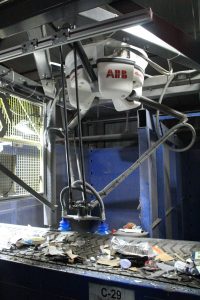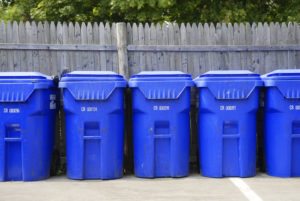Ideally, a product should find its way into the recycling stream only when it has truly reached its end-of-life. This is why reuse matters so much: Reuse gives a second life to the products we use every day by finding effective and creative ways to utilize, repurpose and distribute them.


 Using an advanced visioning system and deep-learning capabilities, a robot is now picking an average of one carton a second off a container line at a Denver-area MRF. It may be an early look at the future of materials processing.
Using an advanced visioning system and deep-learning capabilities, a robot is now picking an average of one carton a second off a container line at a Denver-area MRF. It may be an early look at the future of materials processing. National politics have taken the spotlight over the past few months, but impactful decisions are being made at the state level as legislatures convene.
National politics have taken the spotlight over the past few months, but impactful decisions are being made at the state level as legislatures convene. The opening general session of the Institute of Scrap Recycling Industries’ annual convention tackled the recycling industry’s most vexing question: When will markets rebound?
The opening general session of the Institute of Scrap Recycling Industries’ annual convention tackled the recycling industry’s most vexing question: When will markets rebound? The Oregon Beverage Recycling Cooperative (OBRC), which operates the state’s container deposit program, announced it will pursue a refillable glass bottle program in partnership with local craft brewers.
The Oregon Beverage Recycling Cooperative (OBRC), which operates the state’s container deposit program, announced it will pursue a refillable glass bottle program in partnership with local craft brewers. Nebraska awards nearly $2.5 million for recycling, outreach and litter cleanup projects, and applications are now being accepted for public bins for parks.
Nebraska awards nearly $2.5 million for recycling, outreach and litter cleanup projects, and applications are now being accepted for public bins for parks. 